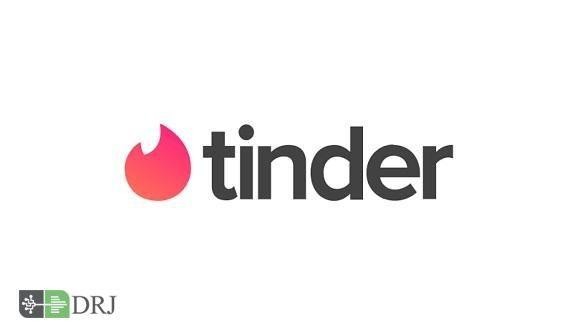
How does this impact their Facebook habits?
A month ago, I suggested that the Facebook Golum will never give up on its data ring — that perfect, shiny, gigantic stream of information about two billion people globally.
Where my Golum comparison goes awry, however, is in the realisation that the real battle of the ring depends on understanding what it is. Facebook users, most of us, do not know the ring.
Exponential Viewconducted a representative mobile survey of 2,027 social media users aged 18+ in the US and in India between 31 May 2018–7 Jun 2018 with the London-based market research company, Qriously.
Interesting highlights:
- nearly two thirds (63%) of the respondents in the US believe that Facebook sells their data to third parties.
- Men (66%) are more likely than women (60%) to believe that Facebook sells their data; older users are more likely to believe this than younger ones. (More detailed data is below.)
- We looked at correlations between Facebook and education levels, but the differences were not especially significant. Respondents with very low education levels (primary education only) tend to use Facebook less regularly, on average, than those with secondary or higher education — but the relationship is not strong.
- Indian users appeared more trusting of Facebook with only 55% believing that Facebook sold their data to third parties. However, this could also imply that the Indian users are less aware of the news surrounding Facebook’s abuse of trust than American users are.
As we’ve established that there is a widespread misunderstanding of Facebook’s data handling, we wanted to figure out whether one’s beliefs impact their on-platform behaviour.
How do users’ beliefs about whether Facebook sells their data affect their actual usage of the platform?
Within the US, those who believe Facebook sold user data to third parties do not use Facebook significantly less compared to others.
Americans who believed Facebook sold their data to third parties:
- 36% use Facebook daily;
- 6.4% claim to have cancelled their account.

Among Americans who believed Facebook did not sell data to third parties:
- 32.4% use Facebook daily;
- 2.7% claim to have deleted their Facebook profile.

I found this set of results curious. If users didn’t like the idea of Facebook selling their data, wouldn’t they use it less?
This was common across both gender and age splits.
So my initial conclusion is two-fold:
- There is a substantial mis-understanding about how Facebook uses users’ data. This confusion may actually favour Facebook. And it may be why the firm is uninterested in using its considerable reach to disabuse its users of that notion.
- Even amongst those Americans who believe (wrongly) that Facebook sells their data, this has not negatively impacted their claimed use of Facebook.
There are similar conclusions amongst the users we surveyed in India, with one key distinction. Amongst those who believed Facebook sold their data, Indian users used Facebook less frequently.
About this survey
We looked at both US and India to provide some comparative results. In future surveys, we’ll be able to look at more geographies.
Thanks to Qriously for supporting this research. Thanks also to the several hundred readers of Exponential View who made this research possible, by sharing the newsletter with their friends. Thanks to Mark Bunting and Marija Gavrilov for helping with drafts of this.
Disclosures: I am a venture partner at Kindred Capital, LLc, which has a shareholding in Qriously.
Two Thirds of the U.S. Population Wrongly Believe Facebook Sells Their Data was originally published in NewCo Shift on Medium, where people are continuing the conversation by highlighting and responding to this story.

ایده ها برای استارت آپ موجب رونق کسب و کارهای اینترنتی
آینده / استارت آپ

استارتآپها ادبیات بازار سرمایه را بلدند؟
استارت آپ

صدور تاییدیه دانش بنیانی شتابدهنده صدر فردا
اخبار / استارت آپ

اپلیکیشن شارژاپ
گوناگون / استارت آپ / رپرتاژ آگهی / بازتاب

جذابترین ایدههای B2B در سال 2020
استارت آپ

تعریف استارت آپ startup
دانشنامه / استارت آپ / مقاله

۱۰ استارتاپ که بدون سرمایه به سوددهی رسیدند
استارت آپ

ایده ها و پیشنهاد برای استارت آپ در سال جدید
راهکارها و ترفند ها / استارت آپ

استارتآپ ایرانی؛ مرجع اول زنان افغان
استارت آپ

شروع یک کسب و کار نوپا پلتفرمی
استارت آپ

برنامه شبکه اجتماعی تیندر
گوناگون / معرفی وب سایت / استارت آپ

10 استارت آپ برتر تاکسیرانی جهان
استارت آپ

پخت پیتزاهای هیجان انگیز با هوش مصنوعی
آینده / استارت آپ

ایده های استارتاپی فراموش شده
دورنما / بازار / استارت آپ

اپل، استارتاپ فناوری خودران Drive.ai را تصاحب کرد
استارت آپ

بررسی مهمترین چالشهای تیمهای استارتاپی
استارت آپ

نگرانی کاربران از هزینه تعمیر و تامین قطعات
گفت و گو / بازار / استارت آپ

مصاحبه با مدیرعامل و بنیانگذار استارتاپ Moz
گفت و گو / استارت آپ

آشنایی با استارت آپ های حوزه مدیریت آب
استارت آپ

راه اندازی ۷۰ استارت آپ توسط نخبگان ایرانی
استارت آپ

معرفی هشت استارتآپ موفق ایرانی در حوزه فینتک
استارت آپ

اولین مرورگر شرعی دنیا
استارت آپ

از صفر تا پیست
استارت آپ

معرفی برترین استارتاپهای CES 2019
اخبار / استارت آپ

ازدواج با فرد ثروتمند یا خوش اخلاق
سبک زندگی / برترین ها

هدف از تشکیل خانواده چیست
سبک زندگی

اول عاشق شویم، بعد ازدواج کنیم
سبک زندگی

خانواده چیست
سبک زندگی

مشاوره خانواده چیست؟
سبک زندگی

اولویتهای پسانداز خانواده چیست؟
سبک زندگی

هزینه های خانواده چیست؟
سبک زندگی

راهکار بیشتر حرف زدن اعضای خانواده چیست؟
سبک زندگی

چرخه زندگی و خانواده چیست؟
سبک زندگی

اهداف و اصول تشکیل خانواده
سبک زندگی

آموزش جنسی نادرست به سبک خانم جلسه ای
سبک زندگی

لطفا تماشاچی آزار زنان نباشید!
سبک زندگی

کودک آزاری؛ از نشانهها و دلایل تا درمان
گزارش / سبک زندگی / پرورش کودکان

روش های تعیین هدف و مسیر زندگی برای رسیدن به موفقیت
سبک زندگی
مجله اینترنتی دیپروتد نشریه مجازی بر بستر اینترنت به مسائل آموزشی و مقالات پیرامون کسب وکار های نوپا یا استارت آپ ها و سبک زندگی است فعالیت و محتوای مطالب ارائه شده در سایت همه بیشتر در حوزه مدیریت، کارآفرینی ، روانشناسی ،اقتصادی و فناوری اطلاعات است نام اصلی دیپروتد "ریشه های عمیق " با مجوز رسمی از هیات نظارت برمطبوعات مشغول به فعالیت است
ما را در شبکه های اجتماعی دنبال کنید
تمامی حقوق برای سایت فوق محفوط است.
S-TECH: ایرانی توانمند | Powered by: مجله اینترنتی دیپروتد







